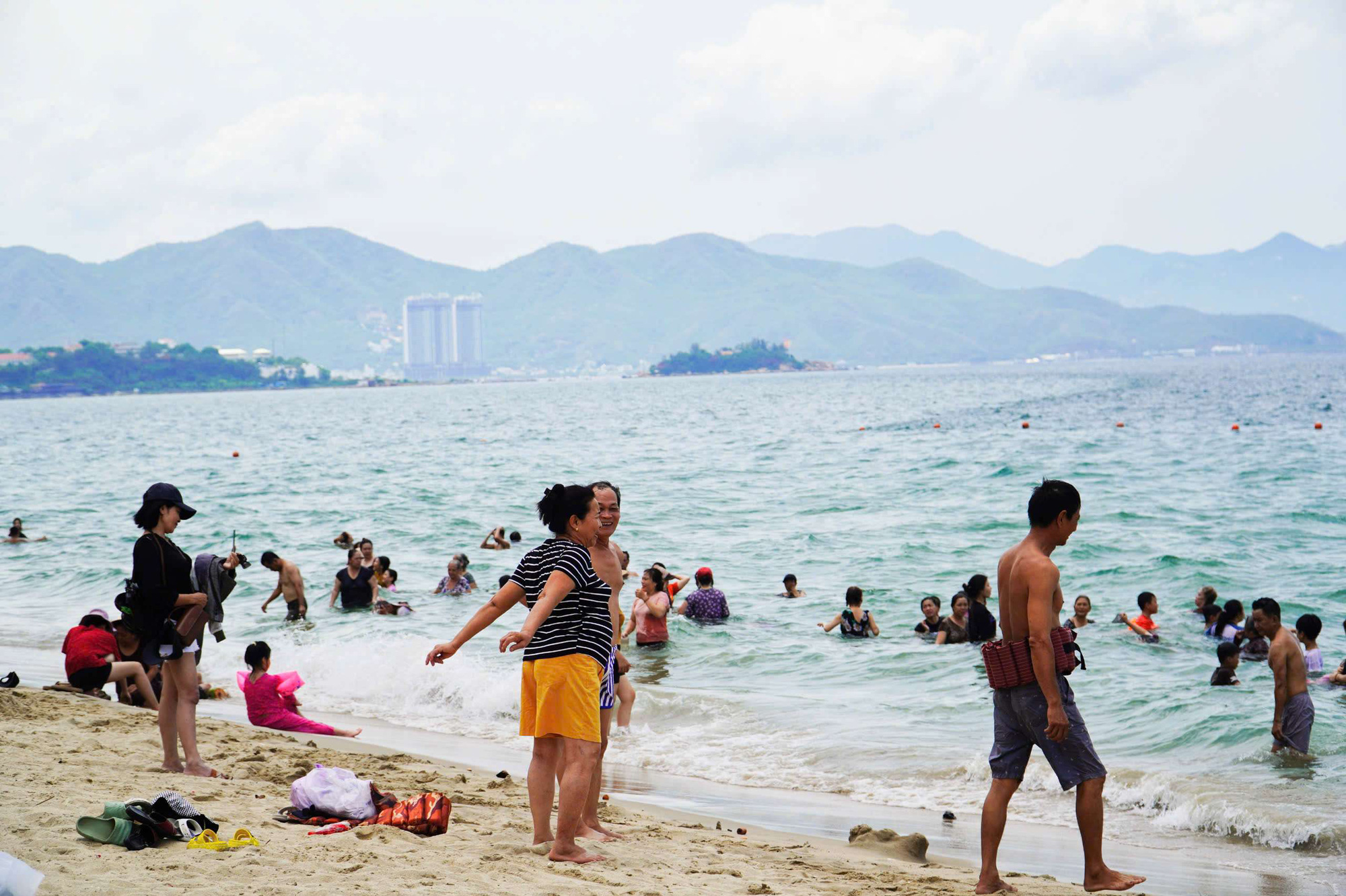Authorities warn that bluebottles are increasingly appearing on the beaches in Nha Trang City, Khanh Hoa Province, south-central Vietnam during their breeding season, posing potential health risks to beach-goers.
Often called bluebottles or the ‘Pacific Man of War,’ bluebottles are clusters of polyps usually located in the Indian and Pacific oceans, according to health information website WebMD.
Bluebottles are not jellyfish.
Technically, they are a zooid or a colony of individuals that need each other to live.
Bluebottles are easy to spot with their bright blue tentacles and floats.
While their floats are generally small, they can have very long tentacles.
Usually, huge groups of them wash up on beaches during the high tide.
They can also be seen from afar in the water and on the sand.
Bluebottle stings are prevalent because they gravitate toward shallower waters where people are more likely to swim.
The bluebottle uses its tentacles to catch, sting, and kill its prey.
The venom it uses is a mix of phenols and proteins that are deadly to their prey, but not to humans.
Immediately after a person gets stung by a bluebottle, they will feel an intense jolt of pain.
This pain will increase if the tentacles move around the person’s body or the area that has been stung is touched.
The pain can last for minutes to hours, depending on each particular situation.
It will then wane to a softer pain and later go away entirely.
The victim will also develop an inflammatory reaction in their skin which usually forms in a line.
In its warning, the Nha Trang Bay management board also gave instructions on treatment for bluebottle stings, Huynh Binh Thai, head of the board, said on Tuesday.
If someone is stung by a bluebottle, immediately remove them from the danger zone and carefully remove tentacles from the skin using clean tools.
Avoid touching the affected area to prevent spreading infection.
Rinse the sting with vinegar or seawater to neutralize toxins; substances like ammonia, alcohol, or baking soda can also be used, and applying cool compresses to the affected area is beneficial.
Never use fresh water, as it can exacerbate toxicity.
Additionally, provide pain relievers, antihistamines, and apply corticosteroid creams as needed.
For severe symptoms, such as swelling, vomiting, abdominal pain, or low blood pressure, seek urgent medical attention at the nearest medical facility.
Dr. Nguyen Ngoc Huy, head of the pediatrics department at Khanh Hoa General Hospital, emphasized that bluebottle tentacles contain toxins, causing poisoning upon contact.
“Mild cases may result in itching and burning skin reactions, while severe cases can lead to anaphylactic shock, which is potentially fatal if not promptly treated,” the doctor added.
Like us on Facebook or follow us on Twitter to get the latest news about Vietnam!






















































